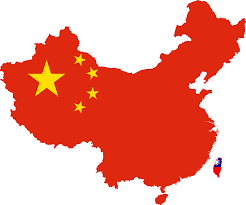Chinese equities listed in Hong Kong have outpaced their regional counterparts, driven by strong performances from major tech firms. Despite concerns over new US tariffs on China, the resilience of companies like Alibaba and Semiconductor Manufacturing International Corp. has bolstered investor confidence, highlighting the sector’s strength and potential.
The Hang Seng China Enterprises Index initially faced a sharp decline of up to 2.5% but recovered, closing nearly unchanged. Alibaba’s significant 6.5% surge, marking its highest point since November 11, underscored the market’s ability to rebound. This upswing coincided with the resumption of Hong Kong trading post-Lunar New Year, while mainland Chinese markets remained closed.
Adding to investor optimism is China’s rapid progress in artificial intelligence. The emergence of DeepSeek’s low-cost AI model has demonstrated Beijing’s growing capabilities, fueling speculation that China is narrowing the technological gap with the US. Anticipation is also building ahead of China’s annual legislative meeting in March, where fresh stimulus measures could further revitalise the market.
Tech sentiment was buoyed by the recent success of various AI models, including Alibaba’s Qwen and Bytedance’s Doubao, which claim to rival international counterparts. Alibaba’s latest AI advancements, which outperformed Meta’s Llama and DeepSeek’s V3 in multiple tests, further solidified investor confidence in China’s tech sector.
Beyond innovation, valuations also favour Chinese equities. The Hang Seng Tech Index is trading at approximately 16 times forward earnings, a significant discount compared to the Nasdaq 100’s 26 times. This valuation disparity presents an attractive opportunity for investors seeking exposure to a market with strong growth potential and competitive pricing.
China’s technology sector continues to demonstrate resilience and innovation, positioning itself as a formidable player on the global stage. As investors weigh opportunities, the combination of discounted valuations, policy support, and AI advancements makes Chinese equities an increasingly compelling proposition.
Fidelity China Special Situations PLC (LON:FCSS), the UK’s largest China Investment Trust, capitalises on Fidelity’s extensive, locally-based analyst team to find attractive opportunities in a market too big to ignore.

